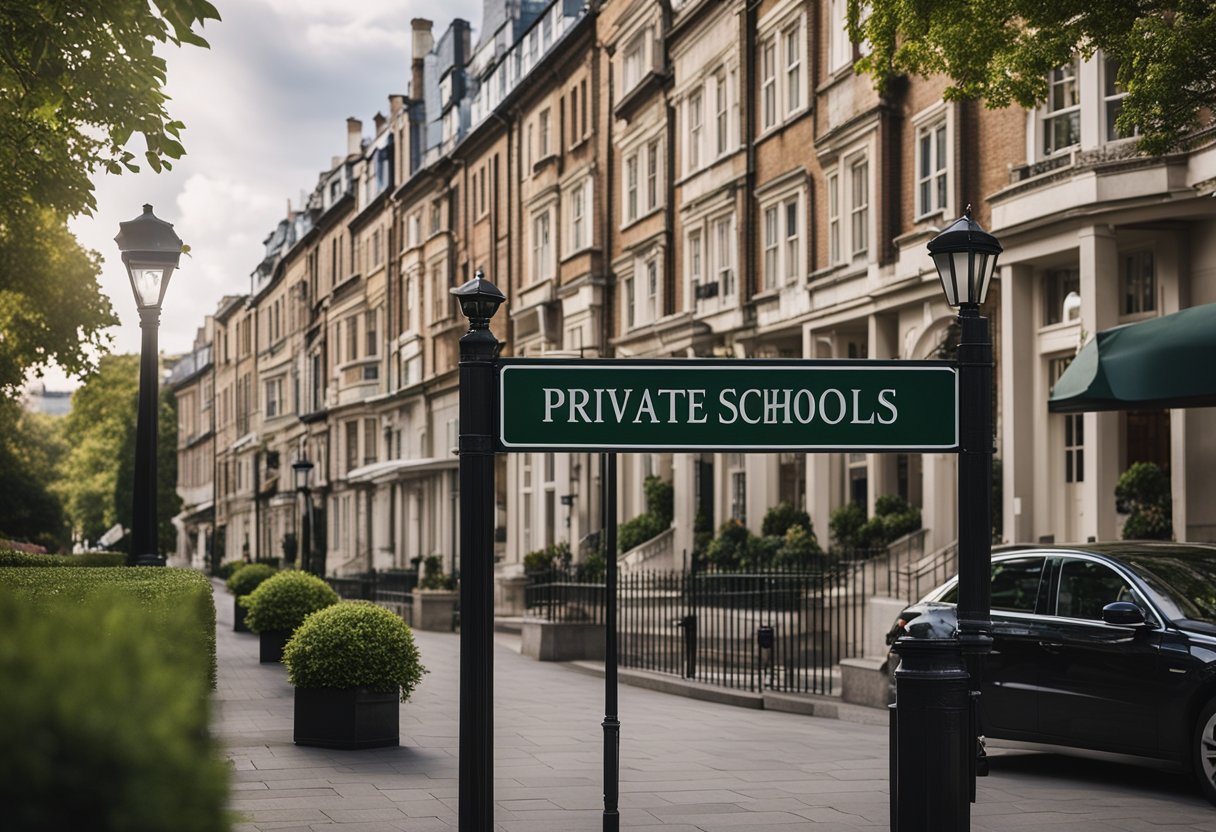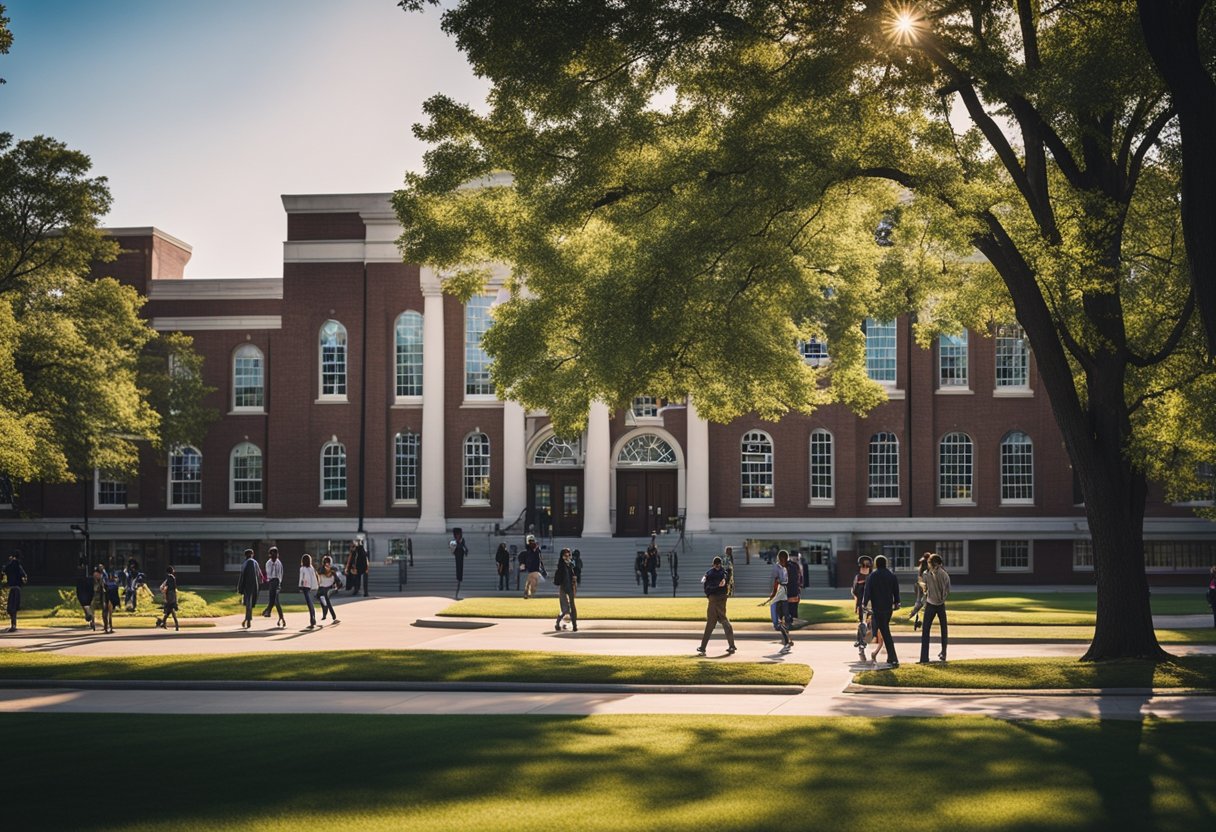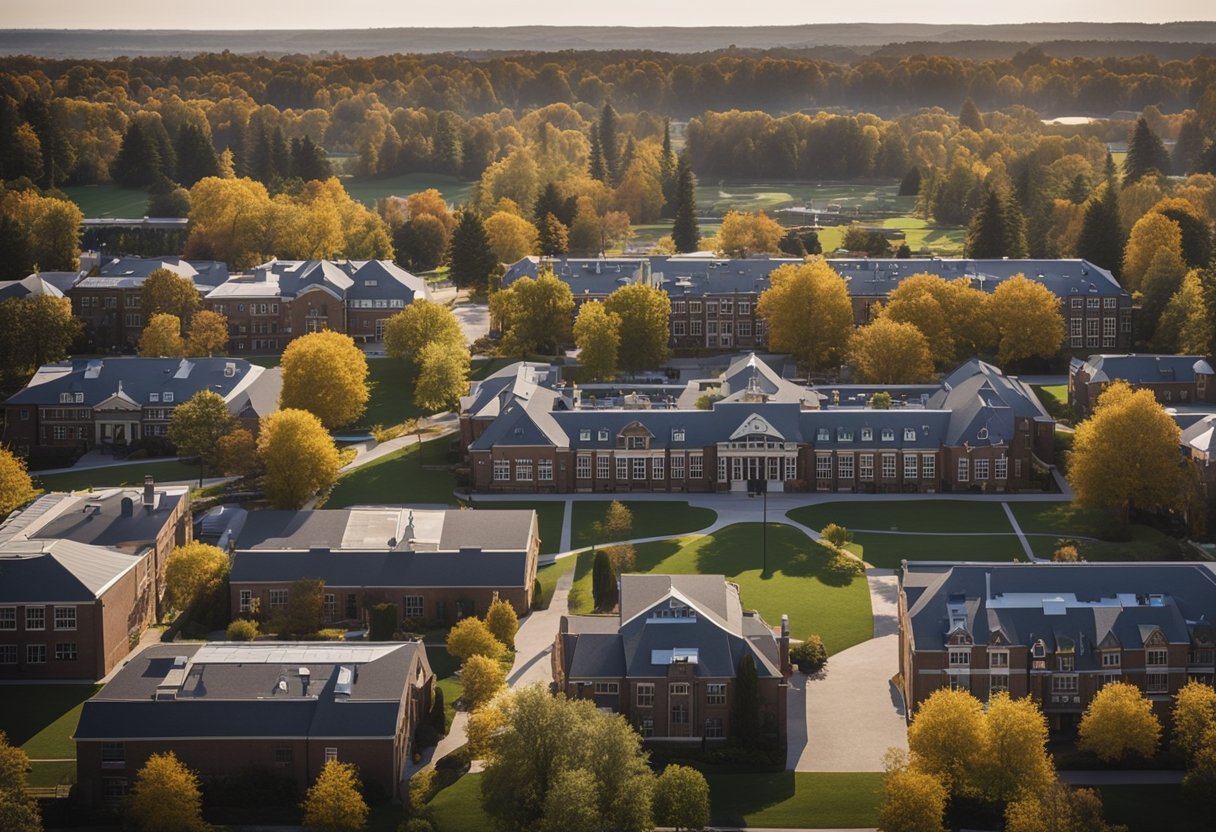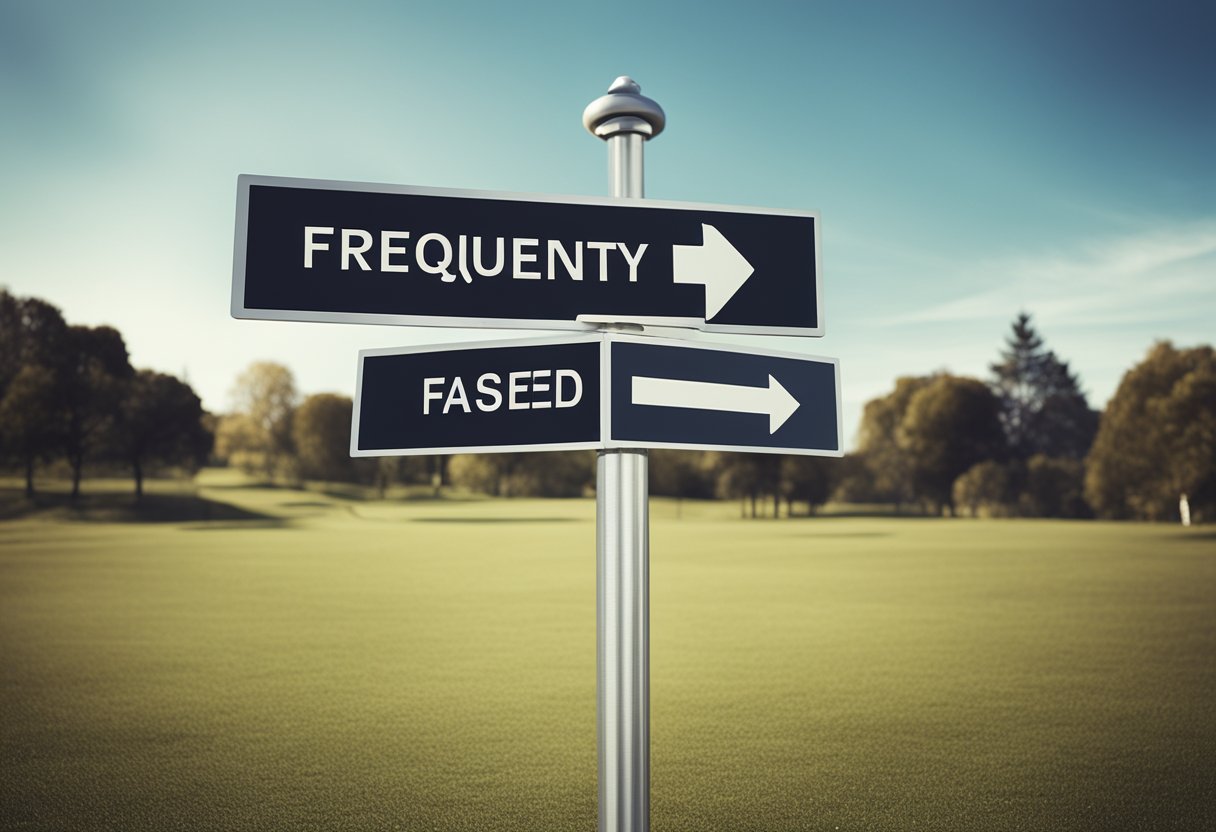When looking for the right educational environment for your children, private schools offer an array of tailored experiences and educational philosophies that may align with your expectations and values. These institutions often provide smaller class sizes, more focused instructional methods, and unique programs that cater to a diverse set of learning needs. As a parent, you have the significant task of exploring these options to determine which school will offer not only the best academic environment but also nurture your child’s personal growth and development.

Choosing a private school involves weighing various factors, including the school’s curriculum, reputation, location, and the extracurricular opportunities it provides. It’s important to consider how these aspects will impact your child’s future and fit with your family’s educational goals. Additionally, understanding the financial commitment and seeking out financial aid options is crucial in making an informed decision.
Key Takeaways
- Private schools provide personalized educational experiences and a variety of programs.
- Selecting a private school requires consideration of the school’s offerings and the child’s needs.
- Being informed about the costs and financial aid options is essential for parents.
Benefits of Private Education
https://www.youtube.com/watch?v=TW0802lavG0&embed=true
When considering education options for your child, you should explore the unique advantages that private schools offer. From tailored academic curricula to more personalized attention, private schools strive to create an environment conducive to educational excellence.
Academic Excellence
Private schools are often recognized for their rigorous academic standards and commitment to excellent educational outcomes. With specialized programs and a curriculum that challenges students, your child is likely to be well-prepared for college and beyond. Moreover, a focus on high achievement is a common theme, allowing students to maximize their potential within these institutions.
Student-Teacher Ratio
One of the clear benefits of a private school is the favorable student-teacher ratio. Smaller class sizes mean that your child is more likely to receive individual attention from skilled and experienced teachers. This can be instrumental, particularly in K-12 education, where personalized interaction can significantly impact a student’s academic growth and understanding.
Specialized Programs for Children with Learning Differences
For children with learning differences, a private school can offer specialized programs tailored to meet their distinct educational needs. Such schools often have resources and support systems in place to help every student succeed, regardless of the challenges they may face. However, it’s important to research and select a school with a strong track record in supporting diverse learners to ensure the best fit for your child’s needs.
Private School Selection Process
https://www.youtube.com/watch?v=zmvbSoO0Qq4&embed=true
When exploring educational options for your child, understanding the private school selection process is crucial. This involves comparing private and public schools, comprehending school district boundaries, and considering reviews and parental involvement.
Comparing Private and Public Schools
Private schools offer distinct advantages over public schools, including smaller class sizes and often more specialized curricula. While private schools usually require tuition, they can provide tailored educational experiences that align more closely with your family’s values or your child’s learning needs. On the other hand, public schools are funded by local taxes and can provide a sense of community and broad diversity. Your choice may depend on your priorities, be it religious education, as highlighted in A Comprehensive Guide to the Private School Admission Process, or other factors such as location and cost.
Understanding School Boundaries and Districts
The location of your home can greatly influence your school options. School boundary maps offer a visual representation of school districts, helping you identify which schools serve your area. It’s important to verify that the private school you’re considering is within a practical distance from your home, while also acknowledging that private schools are not restricted by district boundaries, unlike public schools. This flexibility can be significant when choosing a school that’s the best fit for your child.
Reviews and Parental Involvement
Insight from other parents can be invaluable. Reviews of private schools can shed light on the experiences of families with the school’s culture and educational effectiveness. Furthermore, parental involvement, such as participation in the PTA (Parent-Teacher Association), can influence a school’s community and contribute positively to your child’s education. High levels of parental involvement are often seen as a strong indicator of a quality private school, as discussed in Admissions 101 – Private School Review. Always consider the extent of the role you wish to play in your child’s educational environment during the selection process.
Financial Considerations for Parents

Navigating financial considerations is an essential part of enrolling your child in a private school. You’ll encounter several options and strategies to manage tuition costs, and it’s crucial to understand them to make informed decisions.
Understanding Tuition Costs
Private school tuition can vary, with some institutions charging significant amounts for annual enrollment. This typically includes tuition and fees, but may also cover additional costs such as books, uniforms, and extracurricular activities. To understand the exact financial commitment, you should review the breakdown of costs provided by the schools you’re considering. Here’s an example of what the cost structure might look like:
- Tuition: $20,000 – $30,000
- Books and Supplies: $500 – $1,000
- Uniforms: $300 – $500
- Extracurriculars: $200 – $1,000
Exploring Educational Savings Options
To prepare for these financial obligations, you can explore several educational savings options. For instance, a 529 college savings plan offers tax advantages and has been expanded to cover K-12 private school tuition, allowing you to save for your child’s education expenses while benefiting from tax breaks. Alternatively, a Coverdell Education Savings Account (ESA) can be used for both primary and secondary school expenses with tax-free earnings, though it does have contribution limits.
Another approach is using custodial accounts, such as UGMA/UTMA (Uniform Gift to Minors Act/Uniform Transfer to Minors Act), which can provide a way to save money in your child’s name. Whilst it doesn’t have the same tax benefits for educational expenses as ESAs or 529 plans, it offers flexibility in how the funds are used.
Working with financial professionals can help you understand these choices better. Professionals can assist in creating a tailored plan, weighing factors like your income, potential financial aid, and your long-term educational funding goals.
Remember, each savings option carries its own benefits, limitations, and impact on financial aid eligibility, so it’s essential to do thorough research or consult a financial advisor to determine the best strategy for your family’s needs.
Extracurricular and Community Engagement

Your child’s educational experience extends beyond the academic curriculum at private schools nearby. A robust selection of extracurricular activities, including sports and clubs, and a strong commitment to community engagement provide a holistic approach to development and growth.
Sports and Clubs
You’ll find that private schools offer a wide array of sports programs ranging from traditional team sports such as basketball, soccer, and tennis, to individual sports like golf, swimming, and track and field. Participation in these sports can help your child develop physical skills, teamwork, and discipline.
-
Team Sports:
- Basketball
- Soccer
- Volleyball
-
Individual Sports:
- Tennis
- Swimming
- Golf
Clubs play a significant role in enriching your child’s educational experience, offering opportunities for personal growth, leadership, and exploration of interests. Clubs such as debate, robotics, and arts provide platforms for students to pursue their passions and excel in their talents.
- Academic and Interest-Based Clubs:
- Debate Club: Hones public speaking and critical thinking.
- Robotics Club: Enhances problem-solving and technical skills.
- Arts Club: Cultivates creativity and appreciation for the arts.
Volunteering and Community Contribution
Private schools nearby emphasize the importance of community contributions and encourage your child to partake in volunteer work. These activities enable students to give back to their communities, fostering a sense of civic responsibility and empathy.
- Volunteering Options:
- Local food banks
- Environmental clean-ups
- Senior centers
Through school-organized events, such as charity drives and service days, your child’s school community comes together to support local causes and nonprofit organizations. The engagement with local issues educates students about the world around them and instills a lifelong habit of service.
Types of Private Schools

When exploring private schools in your area, you’ll encounter a broad spectrum of educational environments designed to cater to different age ranges and pedagogical preferences.
Ranging from PK to Senior Levels
In your search, you will find private institutions that serve various educational stages. For example, [PK-8 schools] focus on early childhood through middle school education, creating a continuous learning environment for children to grow. On the other hand, there are [K-12 schools], which provide a comprehensive education from kindergarten to senior year of high school, allowing students to stay in one place for their entire pre-collegiate education. High schools often offer grades [9-12] and focus on preparing students for college and beyond. Certain schools may cater uniquely to lower (K-6) or middle (5-8) grades, allowing for tailored curricula that specifically addresses the developmental needs of those age groups.
Secular vs. Religious Education
You’ll also come across two main streams in private education—secular and religious. Secular schools maintain a neutral stance when it comes to religion, prioritizing a curriculum that is not influenced by religious doctrine. These schools often pride themselves on a diverse approach to education and moral values that’s inclusive of all students regardless of their religious backgrounds. On the flip side, religious schools—like [Christian private schools]—integrate faith with education, offering a curriculum that aligns with their religious principles. These range from Catholic, which tend to be more widespread and might offer lower tuition costs, to other denominations or faiths. Religious schools can vary in the range of grades they serve, with some offering [PK-12] education grounded in their faith-based ethos.
Frequently Asked Questions

As you explore private school options, it’s crucial to have detailed information to make an informed decision. Below are some of the most pertinent questions and insights.
What factors should I consider when comparing top private schools in my area?
When evaluating top private schools, consider their academic curricula, accreditation status, faculty qualifications, campus facilities, and the overall school culture to ensure the best fit for your child’s needs and your family’s values.
How do private school tuitions vary between different states?
Private school tuitions can differ significantly between states due to varying costs of living and the range of services each school offers. It’s advisable to research and compare the tuition of schools in your area and adjacent states if applicable.
What are common extracurricular opportunities available at private schools?
Private schools often provide a wide range of extracurricular activities, including sports teams, arts programs, clubs, and community service opportunities that cater to diverse student interests and encourage holistic development.
What is the average teacher-to-student ratio in private schools?
The teacher-to-student ratio in private schools is generally lower, allowing for more personalized attention and tailored instruction. This ratio can be a critical factor in your child’s academic and social success.
How do I find reviews and ratings for local private schools?
To access reviews and ratings, look for local private school directories or visit educational forums and websites dedicated to schooling options. Testimonials from parents and students can give insight into the real experiences offered by the schools.
Are there any private school scholarships or financial aid options available?
Many private schools offer scholarships or financial aid to families to help offset tuition costs. Research each school’s options, application procedures and deadlines to take advantage of these opportunities.
